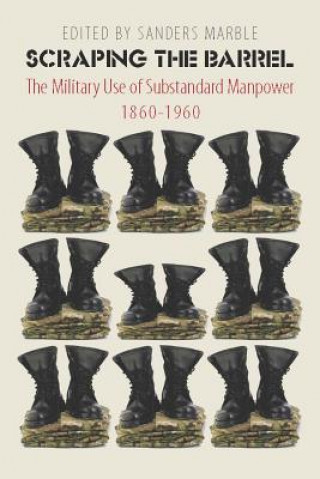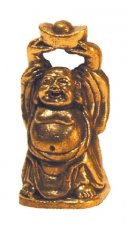
Kod: 04941196
Scraping the Barrel
Autor Sanders Marble
It is a truism that history is written by the victors, and perhaps doubly so of military history, where the tendency is to relate the biggest battles, the most victorious and heroic deeds, the very best (or worst) of men. This boo ... więcej
- Język:
 Angielski
Angielski - Oprawa: Miękka
- Liczba stron: 372
Wydawca: Fordham University Press, 2012
- Więcej informacji o książce

45.28 €
Zwykle: 50.35 €
Oszczędzasz 5.07 €

Dostępna u dostawcy w małych ilościach
Wysyłamy za 14 - 18 dni
Potrzebujesz więcej egzemplarzy?Jeżeli jesteś zainteresowany zakupem większej ilości egzemplarzy, skontaktuj się z nami, aby sprawdzić ich dostępność.
Dodaj do schowka
Zobacz książki o podobnej tematyce
-

Eyelike Stickers: Baby Animals
6.03 € -18 % -

Phantoms in the Brain
14.28 € -22 % -

Zapisane w wodzie
9.05 € -

RHCSA Red Hat Enterprise Linux 9
47.29 € -1 % -

Psycho-Pass - Box 4 - Blu-ray. Box.4, 1 Blu-ray
55.04 € -

Buddha lachend Messing 3 cm
6.83 € -7 % -

Universitaires Et Construction de l'Espace Public Camerounais
55.84 €
Podaruj tę książkę jeszcze dziś
- Zamów książkę i wybierz "Wyślij jako prezent".
- Natychmiast wyślemy Ci bon podarunkowy, który możesz przekazać adresatowi prezentu.
- Książka zostanie wysłana do adresata, a Ty o nic nie musisz się martwić.
Więcej informacji o Scraping the Barrel
Za ten zakup dostaniesz 114 punkty
 Opis
Opis
It is a truism that history is written by the victors, and perhaps doubly so of military history, where the tendency is to relate the biggest battles, the most victorious and heroic deeds, the very best (or worst) of men. This book stands as a corrective to this belief. Scraping the Barrel covers ten cases of how armies have used sub-standard manpower in wars from 1860 to the 1960s. Dennis Showalter and Andre Lambelet look at the changing standards in Germany and France leading up to World War I, while Peter Simkins chronicles what happened with the 'Bantams,' special units of short men used by Britain in the Great War. Often the use of substandard men was to answer the sheer need for manpower in brutal, lasting conflicts, as Paul A. Cimbala writes of the U.S. Veteran Reserve Corps in the Civil War, or to keep war-damaged men active; sometimes this ethos was used to include men who wanted to fight but who otherwise would have been excluded, as Steven W. Short writes of the U.S. Colored troops in the First World War. In the Second World War it was to answer more dire exigencies, as David Glantz relates how the USSR, having suffered enormous losses, threw away many pre-war standards, reaching for women, ethnic/national minorities, and political prisoners alike to fill units. Likewise, Nazi Germany, facing many fronts and a finite manpower pool, was compelled to relax both physical and racial standards, and Walter Dunn and Valdis Lumans look at these changing policies as well as the battlefield performance of these men. In relating the stories of the sub-standard (for the military), Scraping the Barrel is also a humanist history of the military, of the more average men who have served their country and how they were put to use. It throws light on how militaries' ideas of fitness reflect the underlying views of their societies. The idea of "disability" has been constructed based on a variety of physical, yes, but also social standards: as a value judgment on groups viewed as lesser - the aged, the lower classes, and those of different races and ethnic identities. From the American Civil War, through World Wars I and II, through the U.S. Project 100,000 in the Cold War, sub-standard men have been mobilized, served, and fought for their countries. These men are the inverse of the elites that get the lion's share of our attention. This is their untold history.
 Szczegóły książki
Szczegóły książki
Kategoria Książki po angielsku Humanities History Regional & national history
45.28 €
- Pełny tytuł: Scraping the Barrel
- Podtytuł: The Military Use of Substandard Manpower, 1860-1960
- Autor: Sanders Marble
- Język:
 Angielski
Angielski - Oprawa: Miękka
- Liczba stron: 372
- EAN: 9780823239788
- ISBN: 0823239780
- ID: 04941196
- Wydawca: Fordham University Press
- Waga: 499 g
- Wymiary: 229 × 152 × 23 mm
- Data wydania: 14. August 2012
Ulubione w innej kategorii
-

Strange Death of Europe
15.19 € -22 % -

Ethnic Cleansing of Palestine
12.87 € -25 % -

Genghis Khan
19.41 € -7 % -

Twelve Caesars
11.26 € -28 % -

Cuneiform
10.25 € -28 % -

Slightly Out of Focus
15.09 € -20 % -

Empress of the East
13.27 € -28 % -

Secret History
11.26 € -28 % -

Line in the Sand
11.66 € -5 % -

Penguin Historical Atlas of Ancient Egypt
18.21 € -20 % -

God's Playground A History of Poland
67.11 € -

Estonian Textbook
29.28 € -

Road To Berlin
15.29 € -27 % -

Pocket History of Ireland
7.44 € -26 % -

Europe's Tragedy
22.73 € -14 % -

Badges and Uniforms of the Royal Air Force
17.30 € -18 % -

Shah of Shahs
10.25 € -28 % -

History of the Ancient Near East ca. 3000 - 323 BC 3e
55.44 € -

Between East and West
14.28 € -19 % -

Osman's Dream
18.91 € -21 % -

History of the Renaissance World
29.58 € -17 % -

Christ Stopped at Eboli
10.25 € -28 % -

Bury My Heart At Wounded Knee
10.86 € -23 % -

Welsh Castles
33.60 € -19 % -

Penguin Historical Atlas of Ancient Greece
20.12 € -28 % -

Vikings
13.17 € -15 % -

Yom Kippur War 1973
25.35 € -4 % -

Dive Bomber and Ground Attack Units of the Luftwaffe 1933-45
55.94 € -4 % -

Oxford Illustrated History of Britain
29.07 € -28 % -

History of the Vikings
18.41 € -28 % -

Christ's Samurai
15.19 € -28 % -

Hattin 1187
21.63 € -9 % -

Orhan Pamuk: Balkon
30.08 € -28 % -

Dracula, Prince Of Many Faces
15.29 € -19 % -

Origins of the Second World War
11.26 € -28 % -

Penguin Historical Atlas of Ancient Rome
17.30 € -18 % -

Revolutionary Russia, 1891-1991
13.27 € -28 % -

From Colony to Superpower
16.29 € -27 % -

British Isles
21.32 € -17 % -

Annals & The Histories
17.70 € -19 % -

English Castles
29.17 € -19 % -

History of Modern Libya
28.77 € -19 % -

Three Emperors
13.27 € -28 % -

Sekigahara 1600
21.63 € -9 % -

Histories
10.66 € -24 % -

Studies in Pre-Ottoman Turkey and the Ottomans
60.98 € -

Earth is Weeping
15.19 € -28 % -

Take Six Girls
11.26 € -28 % -

Brief History of Italy
12.37 € -21 %
Osobní odběr Bratislava a 2642 dalších
Copyright ©2008-24 najlacnejsie-knihy.sk Wszelkie prawa zastrzeżonePrywatnieCookies


 Vrácení do měsíce
Vrácení do měsíce Zdarma od 49.99 €
Zdarma od 49.99 € 02/210 210 99 (8-15.30h)
02/210 210 99 (8-15.30h)